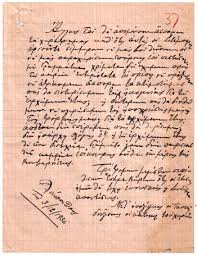Trevor Todd and Jackson Todd have over sixty years combined experience at handling estate disputes, including the revocation of an estate grant.
Re Barretto Estate 2025 BCSC 239 revoked a grant of administration on the basis of misrepresentation that should have prevented the grant from issuing in the first place.
The application is brought pursuant to Rules 25-5(5), 25-14(1)(c) of the Supreme Court Civil Rules, B.C. Reg. 168/2009 [Rules] and this Court’s inherent jurisdiction.
As this Court recently summarized in Narsaiya Estate (Re), 2023 BCSC 1350 at paras. 30-32:
a) Rule 25-5(5) provides that, on application, the Court may order that an estate grant be revoked;
b) Rule 25-14(1)(c) provides that, where there has been an application for estate grant, a person may bring an application under Part 8 of the Rules for an order revoking an estate grant; and
c) Rule 25-1(1)(b) defines “estate grant” as including a grant of administration, whether the grant is made for general, special or limited purposes.
This Court’s jurisdiction to revoke a grant of administration is broad, although it is to be exercised sparingly. As summarized by our Court of Appeal in Desbiens v. Smith, 2010 BCCA 394 at para. 62:
Courts have jurisdiction to revoke estate grants where evidence discloses that the grant ought not to have issued. There are numerous grounds on which probate can be revoked: e.g., where subsequent wills have been discovered; where it has been found that the will is otherwise invalid; where it has been determined that the testator is not, in fact, dead; where it is shown that the executor is under a legal disability (minority or mental infirmity); and where probate has been obtained by fraud. In short, where it is shown that a condition precedent to the grant of probate was not fulfilled, the court has jurisdiction to revoke the grant […]
Section 159(1) of the WESA provides:
If the court discharges or removes a personal representative, the court
a) must appoint another person who consents to act as the substitute personal representative, unless
i. the administration of the estate is complete, or
ii. the court does not consider a new appointment necessary, and
b) may, if the personal representative has resigned or is removed as a trustee, concurrently appoint the person referred to in paragraph (a) as trustee under the Trustee Act in place of the trustee being discharged or removed.
Section 159(1)(a) of the WESA sets out that in the usual course, when a grant of administration is revoked, the Court must issue a grant of administration to another individual. However, the Court has discretion not to appoint another person as a substitute administrator if the administration of the estate is complete or if the Court deems it unnecessary to appoint a substitute.



